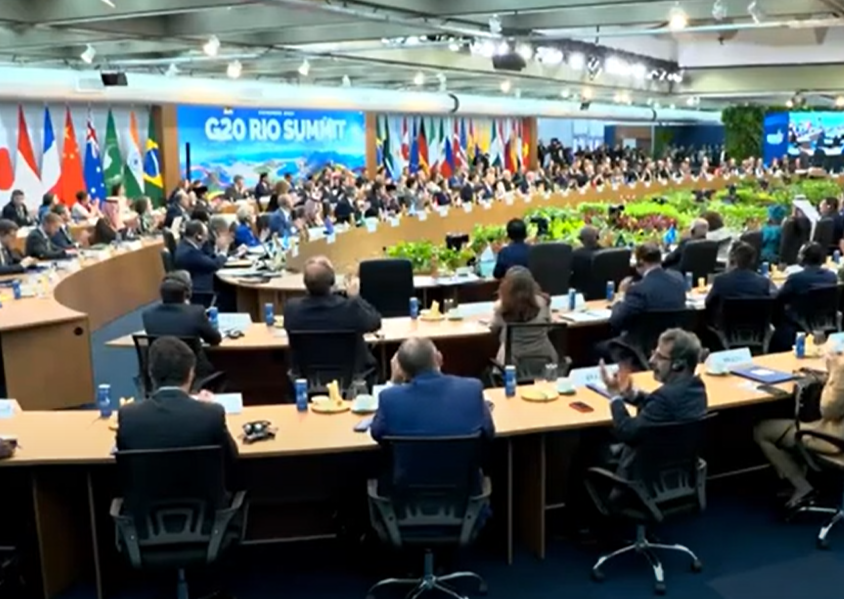Pope tells G20 leaders at Rio that greed causing hunger in the world is ‘homicide’
In his message to the leaders of the most industrialised countries meeting in Brazil, Francis says that there is enough food “to feed all the people on our planet”. He urges “investments that help the poor and hungry meet their basic needs” as well as redirecting “military expenditures towards a global fund” to “promote development”. What is more, “interventions and projects” should not be “imposed from above or by entities that seek only their own interests or profit.”
Vatican City (AsiaNews) – Pope Francis released a statement for the leaders of G20 countries – the group accounts for most of the world’s economy – meeting in Rio de Janeiro for their annual summit, hosted this year by Brazil.
In it, the pontiff writes that, “The silent acceptance by human society of famine is a scandalous injustice and a grave offence. Those who, through usury and greed, cause the starvation and death of their brothers and sisters in the human family are indirectly committing a homicide, which is imputable to them.”
In the statement, read by Vatican Secretary of State Card Pietro Parolin during the first session of work, Francis speaks out again against the scourge of hunger, highlighting the great paradox that in today's world “over 3 billion people lack access to a nutritious diet” while almost two billion “are overweight or obese due to poor nutrition”.
Wars only exacerbate these contradictions.
“[A]rmed conflicts,” he writes, “are not only responsible for a significant number of deaths, mass displacement, and environmental degradation; they are also contributing to an increase in famine and poverty, both directly in the affected areas and indirectly in countries that are hundreds or thousands of miles away from the conflict zones, particularly through the disruption of supply chains. Wars continue to exert a considerable strain on national economies, especially due to the exorbitant amount of money spent on weapons and armaments.”
Hence, the pontiff calls for “immediate and decisive action”, which must “be undertaken in a joint and collaborative manner, with the involvement of the entire international community.” For him, the elimination of malnutrition cannot be achieved "simply by merely increasing global food production” since “there is already sufficient food to feed all the people on our planet”. Instead, it is a question of equitable distribution and “investments that help the poor and hungry meet their basic needs.”
To the world's leaders called to give substance to the Global Alliance against Hunger and Poverty, the pope cites the proposal put forward some time ago by the Holy See that calls for redirecting the funds currently earmarked for weapons and other military spending to a global fund intended to address hunger and promote development in the most impoverished countries.
“This approach would help prevent citizens in these countries from having to resort to violent or illusory solutions, or from leaving their countries in search of a more dignified life.” To achieve this, the pontiff also calls for attention to the concrete life of local communities in elaborating strategies to fight hunger.
The “cultural and traditional richness of peoples cannot be disregarded or destroyed in the name of a narrow and short-sighted concept of progress. To do so would, in reality, risk becoming synonymous with ‘ideological colonisation’” with interventions and projects “imposed from above or by entities that seek only their own interests or profit.”
“For its part, the Holy See will continue to promote human dignity and to make its specific contribution to the common good, offering the experience and engagement of Catholic institutions worldwide, so that in our world no human being, as a person loved by God, be deprived of his or her daily bread.”
Addressing G20 leaders directly, Francis ended saying: “May Almighty God abundantly bless your works and efforts for the genuine progress of the entire human family.”







.png)










